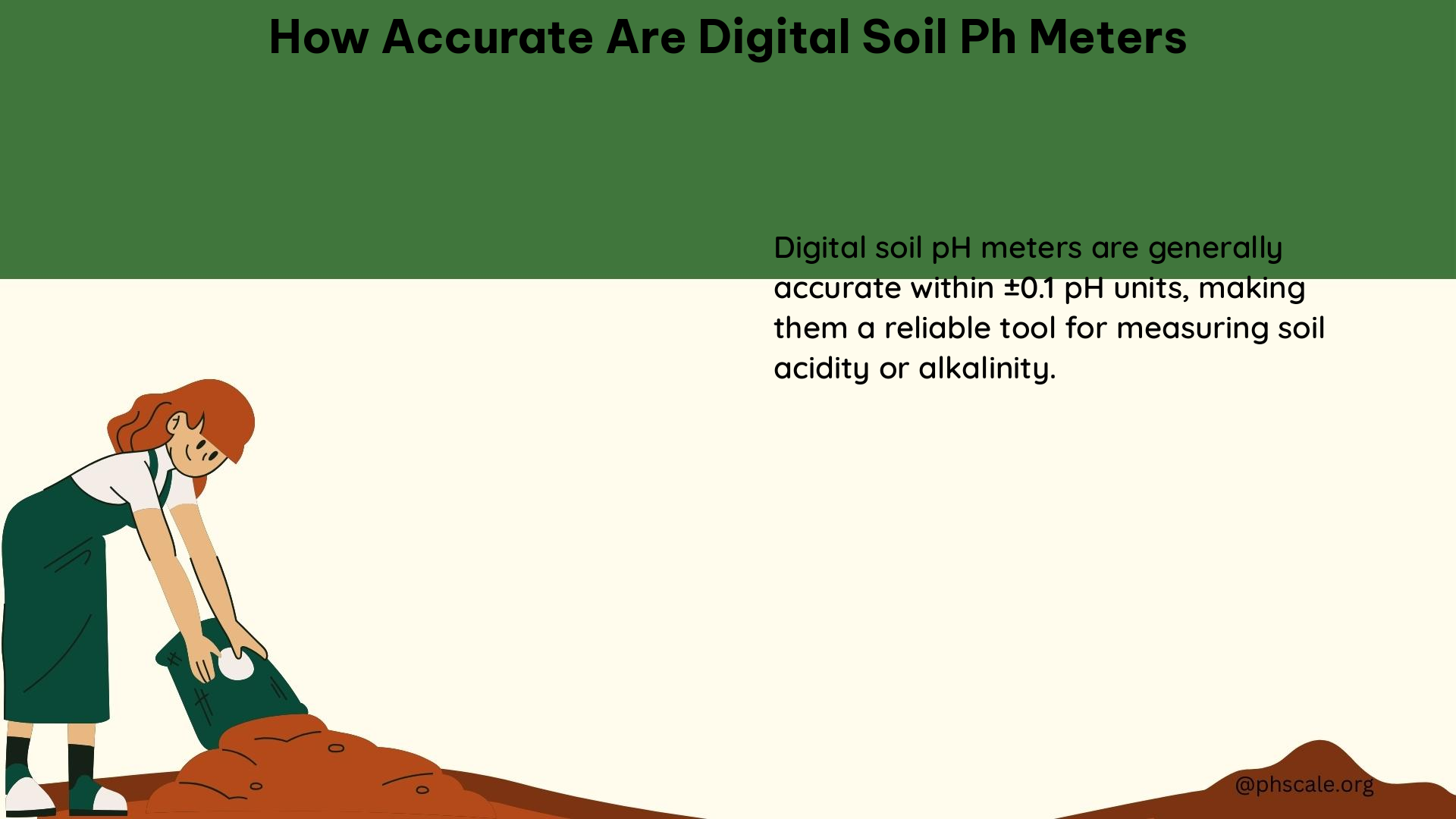Digital soil pH meters are a popular tool for measuring the acidity or alkalinity of soil, but their accuracy has been a subject of debate. In this comprehensive blog post, we’ll explore the key factors that determine the accuracy of these devices and provide insights to help you make informed decisions when selecting and using a digital soil pH meter.
Factors Affecting the Accuracy of Digital Soil pH Meters
1. Probe Quality
The quality of the pH probe used in the digital meter is a crucial factor in determining its accuracy. Cheaper models often come with low-quality probes that can provide inconsistent or inaccurate readings. Investing in a digital soil pH meter with a high-quality probe from a reputable manufacturer can significantly improve the reliability of your measurements.
2. Soil Moisture Content
The moisture content of the soil can have a significant impact on the accuracy of digital pH meters. Some meters are designed primarily for measuring moisture levels and may not provide accurate pH readings, especially in soils with high organic matter content. It’s essential to follow the manufacturer’s instructions and ensure that the soil sample is within the recommended moisture range for accurate pH measurements.
3. Calibration and Maintenance
Digital soil pH meters require regular calibration and maintenance to ensure accurate readings. Failure to calibrate the device according to the manufacturer’s instructions or neglecting to clean the probe can lead to significant errors in the pH measurements. It’s recommended to calibrate the meter before each use and to clean the probe regularly to maintain its performance.
4. Soil Composition and Contaminants
The composition of the soil, including the presence of various minerals, organic matter, and contaminants, can affect the accuracy of digital pH meters. Certain compounds, such as carbonates, can interfere with the pH measurement, leading to inaccurate readings. It’s important to consider the specific characteristics of the soil being tested and to interpret the results accordingly.
5. Comparison to Other Methods
When evaluating the accuracy of digital soil pH meters, it’s helpful to compare their performance to other established methods, such as the “slurry method” or the use of pH test strips. These alternative methods can provide more reliable and consistent results, especially when the digital meter is not performing as expected.
Acceptable Margin of Error

For most plants, a soil pH range of 5.8 to 6.2 is considered optimal. Given the logarithmic nature of pH, a small change in pH numbers can have a significant impact on plant growth and nutrient availability. Therefore, the acceptable margin of error for digital soil pH meters should be as low as possible, ideally within 0.1 pH units.
Cost and Quality Considerations
The accuracy and reliability of digital soil pH meters are often correlated with their cost. More expensive models, such as those from reputable brands like Kel Instruments, are generally considered more accurate and durable than their cheaper counterparts. While the initial investment may be higher, the improved accuracy and longevity of a high-quality digital pH meter can make it a worthwhile investment in the long run.
Conclusion
Digital soil pH meters can be a convenient tool for measuring soil acidity or alkalinity, but their accuracy is not always reliable. By understanding the factors that can affect the accuracy of these devices, such as probe quality, soil moisture, calibration, and soil composition, you can make more informed decisions when selecting and using a digital soil pH meter. Remember to consider the acceptable margin of error and be willing to invest in a higher-quality model for the most accurate and reliable results.
References:
1. https://www.thcfarmer.com/threads/are-the-digital-soil-ph-meters-accurate-or-should-i-do-the-slurry-method.159903/
2. https://www.thelawnforum.com/threads/are-ph-meters-from-amazon-any-good.37280/
3. https://overgrow.com/t/do-soil-ph-meters-really-work-are-these-normal-readings/110735
4. https://www.gardenmyths.com/soil-ph-testers-accurate/
5. https://www.greenhousegrower.com/production/which-is-best-for-soil-ph-monitoring-digital-or-testing-strips/
